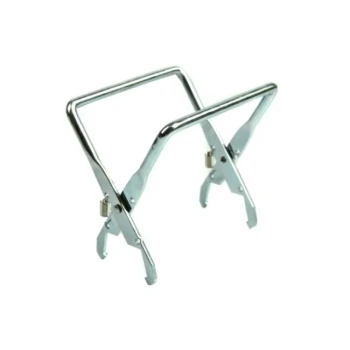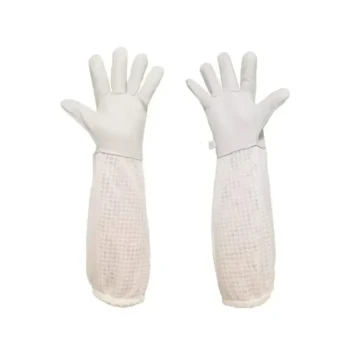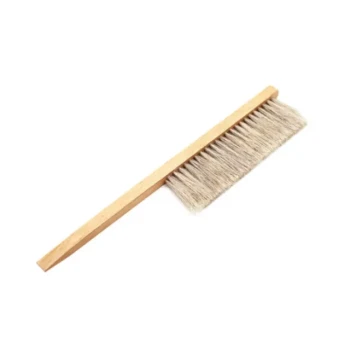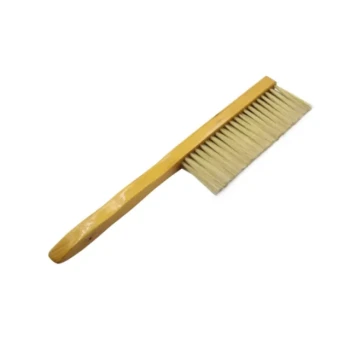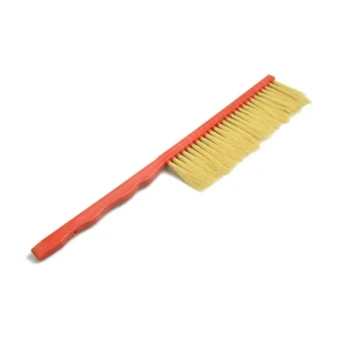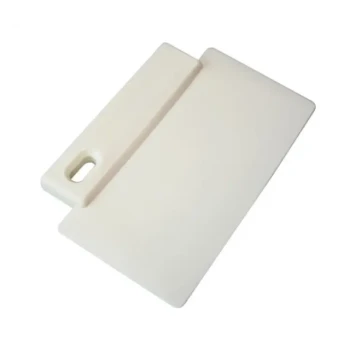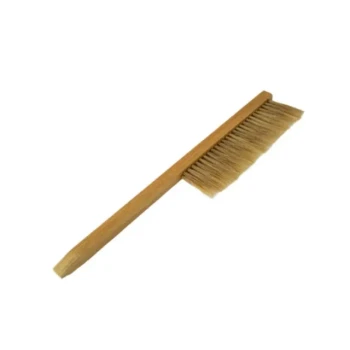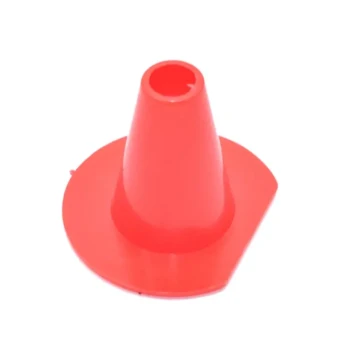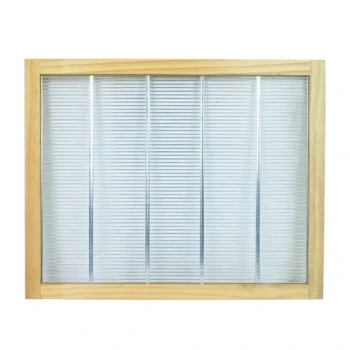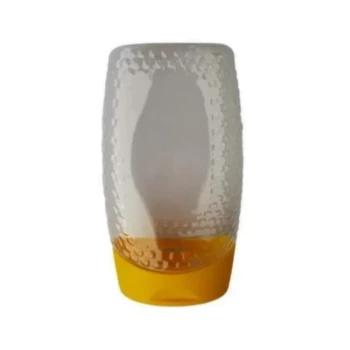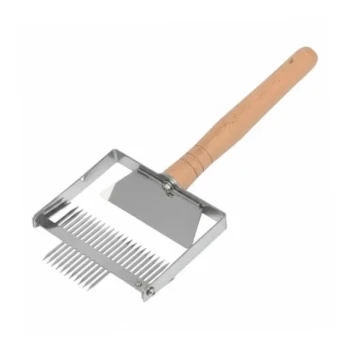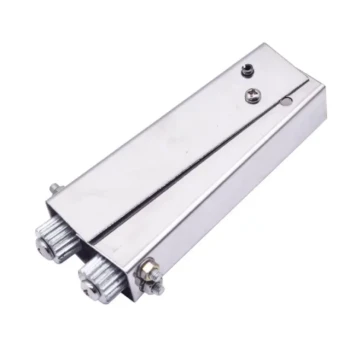The primary benefits of expanded polystyrene (EPS) hives are superior thermal insulation, increased honey production, and a lightweight design. These hives protect bees from extreme temperatures, which allows the colony to dedicate less energy to heating or cooling the hive and more energy to foraging and raising brood, resulting in better overall health and productivity.
Expanded polystyrene hives are best understood not as a replacement for wood, but as a different tool engineered for a specific purpose: maximizing the energy efficiency of the bee colony. This shift in focus from material tradition to colony thermodynamics has significant implications for bee survival, honey yield, and the beekeeper's workload.
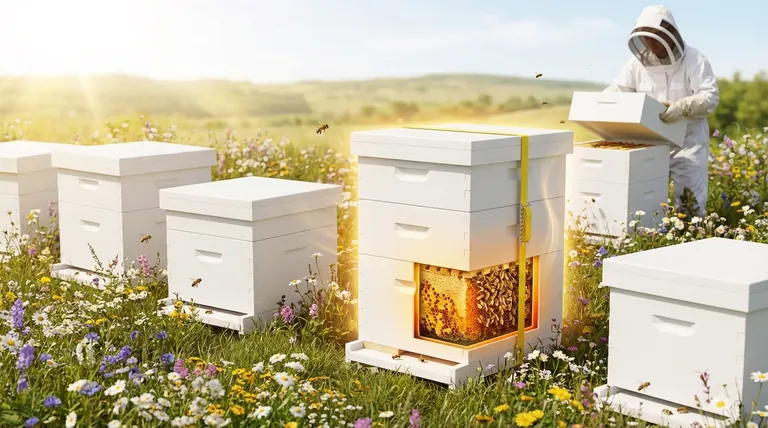
The Core Advantage: Superior Thermal Insulation
The defining feature of an EPS hive is its ability to insulate. This single property has a cascading effect on nearly every aspect of the colony's life.
Why Insulation Matters for a Colony
Honey bees are warm-blooded insects that must maintain a stable internal hive temperature, typically around 95°F (35°C) in the brood nest, regardless of the outside weather.
This temperature regulation requires an immense amount of energy. A well-insulated hive acts like a thermos, drastically reducing the energy (and honey) the bees must consume to stay warm in winter and cool in summer.
Better Winter Survival and Spring Buildup
In a wooden hive, a winter cluster must burn through significant honey stores just to generate heat. High-density EPS offers up to eight times the insulation of wood, meaning the winter cluster loses far less heat to the environment.
This leads to lower honey consumption, reduced winter mortality, and a stronger, more populous colony ready for a rapid buildup as soon as spring arrives.
Higher Honey Production
Because bees in an EPS hive spend less energy on thermoregulation, the workforce can be reallocated. Fewer bees are needed for fanning and water collection to cool the hive in summer, freeing them up to forage for nectar.
This improved efficiency is a primary driver behind the higher honey yields often reported by beekeepers using polystyrene equipment.
Practical Benefits for the Beekeeper
Beyond colony health, EPS hives offer tangible advantages that reduce the beekeeper's physical labor and long-term costs.
Lightweight and Easy to Handle
Polystyrene is significantly lighter than wood. This makes lifting heavy supers full of honey, transporting hives, and performing routine inspections far less physically demanding.
Durability and Low Maintenance
Unlike wood, high-density polystyrene does not rot, is less prone to mold, and does not require painting or chemical treatments to withstand the elements. This resilience translates to a longer service life and less time spent on equipment repair.
Long-Term Cost-Effectiveness
While the initial purchase price may be comparable to or higher than wood, the total cost of ownership for EPS hives is often lower. Their durability and low maintenance needs mean they require less frequent replacement and repair over the years.
Understanding the Trade-offs
No hive material is perfect. The advantages of EPS come with a different set of considerations compared to traditional wood.
Structural Integrity
While durable against weather, EPS is softer than wood and can be damaged by careless use of a hive tool. Beekeepers must adapt their techniques to avoid gouging or denting the material.
Moisture Management
Wood is porous and can absorb some internal hive moisture. EPS is non-porous, meaning condensation can build up if ventilation is inadequate. Proper top and bottom ventilation is absolutely critical in an EPS hive to ensure a dry, healthy environment for the bees.
Environmental and Aesthetic Considerations
Some beekeepers prefer the natural, traditional aesthetic of wooden hives. While wood is a renewable resource, it's worth noting that modern, high-density EPS hives are 100% recyclable and have a long lifespan, which mitigates their environmental impact.
Making the Right Choice for Your Goal
Selecting a hive material depends entirely on your beekeeping priorities.
- If your primary focus is maximizing colony health and honey production: The superior thermal performance of EPS provides a direct and measurable advantage for bee survival and productivity.
- If your primary focus is minimizing physical labor and long-term costs: The lightweight, durable, and low-maintenance nature of EPS makes it a highly practical and economical choice.
- If your primary focus is a traditional beekeeping experience: A classic wooden hive remains the standard, but you must be prepared to help your bees manage the greater thermal stress.
Ultimately, choosing the right hive is about providing your bees with the best possible environment to thrive.
Summary Table:
| Benefit | Key Takeaway |
|---|---|
| Superior Insulation | Up to 8x better than wood; protects bees from extreme temperatures. |
| Higher Honey Production | Bees spend less energy on heating/cooling, freeing them for foraging. |
| Improved Winter Survival | Stronger colonies with lower honey consumption and mortality. |
| Lightweight & Durable | Easy to handle, resistant to rot, and requires no painting. |
Ready to boost your apiary's productivity and efficiency?
HONESTBEE supplies high-quality, high-density expanded polystyrene (EPS) hives and beekeeping equipment to commercial apiaries and distributors through our wholesale-focused operations. Our EPS hives are engineered to maximize colony health and honey yield while reducing your long-term costs and physical labor.
Contact our wholesale team today to discuss how our equipment can benefit your operation.
Visual Guide
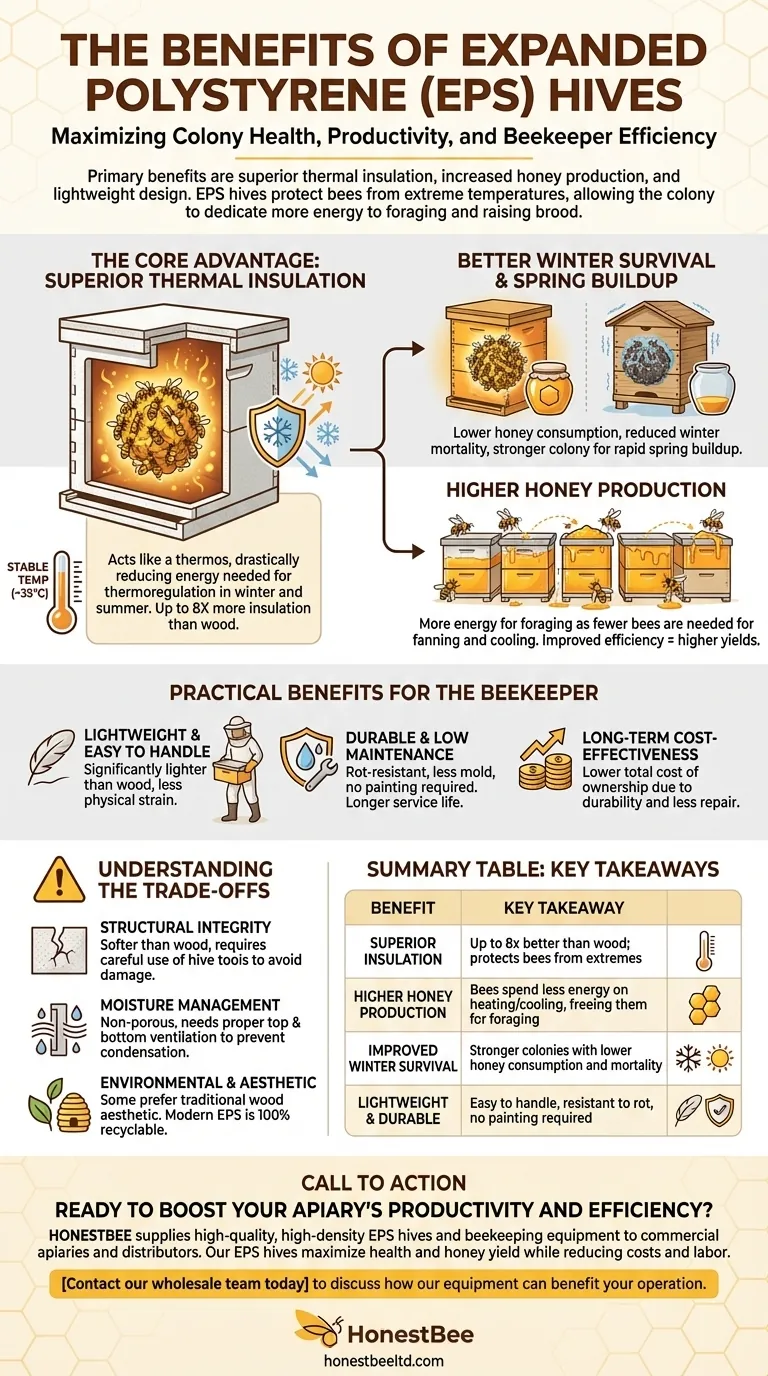
Related Products
- Professional Galvanized Hive Strap with Secure Locking Buckle for Beekeeping
- Durable Galvanized Steel Frame Grip
- Premium Ventilated Goatskin Beekeeping Gloves with Full 3-Layer Mesh Sleeve
- Langstroth Screen Bottom Board for Beekeeping Wholesale
- Professional Plastic Queen Excluder for Modern Beekeeping
People Also Ask
- How can a beehive be physically secured against harsh winter weather? Expert Winterizing Strategies for Your Apiary
- What is the best length for straps used around beehives? Why 12 Feet is the Industry Standard
- Why are hive straps important for beekeepers? Secure Your Hives Against Wind, Predators & Transport
- How should a cam buckle strap be installed for optimal performance? Master the Leverage for Maximum Tension
- What are hive straps and why are they used? Secure Your Hives Against Wind, Predators, and Transport

